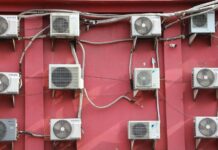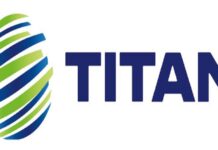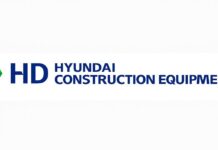Many construction firms quickly applied for a waiver from the state Department of Community & Economic Development to continue working. Meanwhile, many are finding they have to quickly adapt to a new normal and grapple with the uncertainties this brings to their industry.
In a letter to the governor, officials from the five chapters that make up the Associated Builders and Contractors of Pennsylvania asked Wolf for further clarification of his executive order and to grant a waiver for the construction-industry-at-large.
Prior to Wolf’s closure announcement, many construction firms were operating as usual, even as many businesses closed their doors over fears of the mounting crisis.
“We had one client ask us to stop work, it was a health care provider and we’ve had some other projects that we have stopped, but with existing buildings we put a few additional measures in,” said Sean Boyle, president and CEO of Boyle Construction of South Whitehall Township.
Boyle was interviewed shortly before Wolf’s announcement.
For one project, an existing building with two elevators, the company put up barriers to protect workers from the occupants. His company also issued a policy to clients that explained how they are operating with safety procedures in place.
“If they stop inspections, that’s going to put construction at a halt,” Boyle said. “If we get to that point, and we can’t put the drywall on, we can’t go any farther. That’s going to put a huge financial burden on us.”
Production was still at 90% capacity as of March 16, Boyle said.
The company’s office functions shifted to allow those employees to work from home. For the most part, the construction workers are spread out and there haven’t been any issues getting supplies yet, Boyle said.
After Wolf’s order, Boyle said his company applied for waivers for jobs deemed essential, such as pharmaceutical, biotech, health care, financial institutions and a few others related to food distribution. So have some of his clients, he added.
Boyle’s company is still working but only on health care projects for major health care networks. He is hoping for more waivers soon to get other jobs working.
As of March 23, Boyle his company laid off about 70% of its field work force.
“Our full office staff is working remotely this week from home,” Boyle said. “We will analyze field staff day to day based on waivers and where we are permitted to work.”
Major disruption
The COVID-19 pandemic is affecting construction in the commercial and industrial sectors. The integrated supply chain of the construction industry creates production and supply problems if one company is shuttered and another is not, or if one state shuts down construction businesses and another does not.
As an example, New Jersey currently exempts construction from shutting down.
“I think you are going to have a nationwide shutdown,” said Kevin McGowan, president of McGowan Corporate Real Estate Advisors in Upper Macungie Township.
If companies that produce the materials required to build warehouses close it will halt those projects, he said.
“The production and delivery of that is the issue,” McGowan said. “We have seen buildings that are mostly completed; this construction shutdown is hurting that.”
Some companies took action earlier in the COVID-19 scare to identify staff members that were highly susceptible to contagion and set them up to work remotely. Ron Jerdon, president of Jerdon Construction in Upper Macungie, said his company did it once COVID-19 began hitting the headlines. Now, nearly all field staff management and administrative staff are working remotely, he said.
“We are adapting fairly well, taking a day-by-day approach, keeping all our staff informed on a daily basis,” he said. “We are continuing to function fairly well, meeting the project needs we have going.”
The company still does estimates and collaborates with design teams, but everything is done virtually. “We are planning for the future, making sure we have a solid financial base,” Jerdon said.
Preparing for the future
However, his company, which employs about 38, had to make some temporary field staff layoffs because of COVID-19. About 60 percent of his workforce is laid off but he plans to hire them back once the pandemic ends.
“We are trying to take advantage of any government programs available,” Jerdon said. “Our plan is to get everything back as quickly as possible. Right now, we are trying to maintain as much operation as we can. At this time, we don’t want to put anyone’s health at risk.”
His company has been able to continue working on a few key projects for Lehigh Valley Health Network and he was able to secure a waiver from the state to continue working. He acknowledged it took a while because the volume of requests was so large.
His company also has been practicing social distancing at job sites and incorporated mandatory practices and Occupational Safety and Hazard Administration policies for COVID-19.
The firm cancelled all in-person meetings and increased sanitization of job sites.
Employees have been adjusting as well as can be expected, Jerdon said. “Every effort is being made to resume normal activity as quickly as possible.”
Obtaining supplies is getting harder every day. Jerdon’s company has had trouble getting concrete for one of the health care projects and many vendors have limited service.
“So far, we’ve been able to navigate all of the obstacles fairly well,” he said.
He also foresees more restrictions.
“Given the daily updates, I think with confirmed cases constantly rising, I think it’s just a matter of time before more restrictions are put in place.”



























